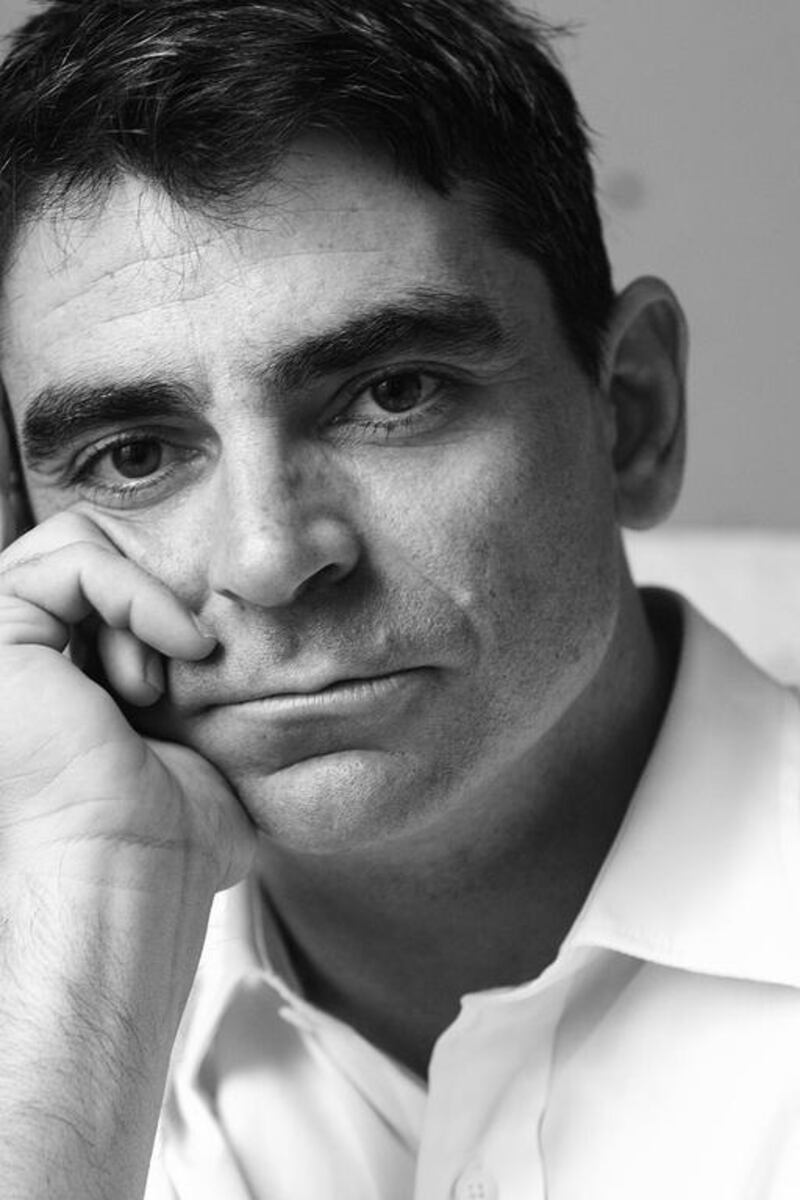“I’m convinced a lot of western people living in Dubai are running away from something.” The best-selling Irish-American author Joseph O’Neill isn’t being deliberately provocative when I ask him to explain why the cut-adrift narrator in his new Man Booker-longlisted novel finds himself leaving America for the “abracadabrapolis” of Dubai. He’s just bracingly realistic – which sums up his new book in a nutshell.
Undoubtedly, any expat in the UAE reading The Dog will initially feel slightly uncomfortable about the way they are portrayed. The unnamed narrator does very little work for the family who employ him. He unflinchingly picks apart desolate lives in corporate tower blocks and the greed and vacuity of wealth, but at the same time battles with his own notions of morality – battles that he often loses.
“He revels in shallowness and it is a comic novel,” says O’Neill. “I certainly kept laughing when I was writing – I couldn’t quite believe what he was doing or saying. But does that make him grotesque? Only because we’re privy to what he’s thinking – the novel essentially invades his privacy.”
And that is what makes The Dog so fascinating. Although it can easily be read – and will certainly be interpreted by some – as a fairly unflinching satire of life in Dubai, there is a deeper investigation of the human condition here. O'Neill uses, for example, the narrator's guilt at the construction workers he watches fall to their deaths not to point the finger at the UAE, but to nag away at power structures around the world.
“How different, really, is the scenario of an expat passing by a construction worker in Dubai to someone in a cafe in a cool part of London, feeling pretty happy with themselves and their low-carbon footprint as they sip their cappuccino? That person’s situation rests on vast structures of exploitation too, they’re just better disguised in London.
“I share my character’s distaste for what I call this industry of condemnation; this sense that people in western countries who have acquired their status and wealth by historically and systematically oppressing people should now garnish their luxurious lifestyles by becoming moral arbiters. It’s why I always laugh when people criticise Dubai.”
But why Dubai? This could have been an expat story in Shanghai, Kuala Lumpur or Singapore. O’Neill says that the seed for the book began in 2006. “A bit like the character in the book, I was hooked by this enormous experiment and fantasy in the Gulf,” he says with a smile. “I just kept hearing about Dubai.”
What gave The Dog some meat was O'Neill's first trip to the UAE in 2009, which took place in a much less-fantastical time – during the financial crash. "I saw those supercars abandoned at the airport for myself," he recalls. During another visit two years later, O'Neill spent time talking to residents, attempting to understand their motivations.
“There are the ones who regret coming to Dubai a bit, I think. They’re unreflective, grab what they can,” he says. “Brainless hedonists, really. But then there are people who become anthropologists, find themselves in a new society and are curious about and fascinated by what’s going on in this amazing country – amazing for better and worse.”
Of course, there will be some readers who still don't think O'Neill really understands life in Dubai – although it does feel worryingly authentic (and not just because the book namechecks The National).
Plugging into the expatriate experience comes easily to O’Neill. Born in Ireland, his father built petrochemical installations and refineries across the planet.
“We were always moving around the world until we stopped in Holland,” O’Neill explains. “My father actually built a refinery in Abu Dhabi and we didn’t go with him because there was no prospect of families living there in those days. That’s how much the UAE has changed.”
O'Neill's previous book Netherland, famously enjoyed by Barack Obama, also looked at troubled individuals trying to find their way through globalisation. In a way, The Dog is a companion piece, only this time focusing on an American in the world rather than the world in America.
“Increasingly, our sense of nationality is becoming more tenuous,” he argues. “Attachment to a homeland is becoming more and more contingent on where the money is. I’ve lived in New York and London and it’s simple: people move to wherever they have to go, not necessarily where they want to go. That’s one feature of globalisation which both books are interested in.”
And both books, of course, now have been longlisted for the Man Booker. It’s not a surprise – they’re both urbane, accessible novels with a global view.
“I feel good about it, very lucky, in fact,” says O’Neill. “You know, it’s a prize that is pretty important to everyone because it helps us survive as writers.”
• The Dog (Fourth Estate) is out now. The Man Booker Prize 2014 shortlist will be announced on September 9
artslife@thenational.ae





